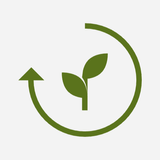How Do I Establish Myself As An Authority In My Industry?
Your knowledge is your most valuable business asset.

In the quiet moments between customers, you've probably never thought about something remarkable: you possess wisdom that other people actively search for every single day.
The specific knowledge you've gathered over years of experience—knowledge that seems obvious to you—is precisely what someone in your community is desperately seeking right now.
The Invisible Value of What You Already Know
Martin has been a plumber in Edinburgh for 22 years. When I asked what made him special as a plumber, he shrugged and said, "I just know how to fix things."
But as our conversation continued, something became clear. Martin didn't just "know how to fix things." He possessed detailed expertise in:
- The unique plumbing challenges in different Edinburgh neighbourhoods based on when they were developed.
- How water pressure issues manifest differently in tenement buildings versus modern flats.
- The subtle warning signs that distinguish a minor leak from an impending major plumbing failure.
- Which pipe materials commonly used in Scottish homes in different decades are most prone to specific types of problems.
Like most experienced professionals, Martin had undervalued his accumulated knowledge. He saw it simply as "doing my job"—not as the valuable intellectual property it truly was.
This oversight is remarkably common among skilled service providers.
The deeper your expertise in your field, the more likely you are to underestimate its value. Psychologists call this the "curse of knowledge"—the difficulty of recognising how valuable your specialised information is because it seems so obvious to you.
Your Knowledge: Sowing the Ground for Authority
What's the difference between expertise and authority?
Expertise is what you know.
Authority is being recognised by others as a trusted source of that knowledge.
In the past, the path from expertise to authority was limited by geography and connections. You could only become known as the authority in your field among people who had directly experienced your work or heard about you through word-of-mouth.
Today, the path has widened dramatically. Your specialised knowledge can establish you as an authority far beyond your immediate circle—if it becomes discoverable by those seeking it.
Consider Anne's story. For 15 years, she provided exceptional home organising services in a small Scottish coastal town. Her clients loved her work, but new business came exclusively through referrals.
"I was good at what I did," she explains, "but I was invisible to anyone who didn't already know someone I'd worked with."
Everything changed when Anne's knowledge became discoverable online. She didn't create fancy marketing or promotional content. Instead, she simply shared her practical wisdom:
- Her approach to organising Scottish homes with limited storage space.
- Specific solutions for organising rainwear and outdoor equipment in damp climates.
- Seasonal organising systems that accounted for the realities of Scottish weather.
"Suddenly, people were finding me who had no connection to my existing clients," Anne recalls. "They'd read something I'd written and contact me, saying, 'You understand exactly what I'm struggling with. When can you help?"
Anne's expertise hadn't changed. What changed was its visibility and reach, transforming her from a skilled service provider into a recognised local authority.
The Knowledge You Already Possess
Every service provider has accumulated knowledge that potential customers actively value. Yet much of this wisdom remains trapped in your mind, unavailable to those searching for exactly what you know.
Take a moment to consider the specialised knowledge you've developed in your field :
Practical Problem-Solving Knowledge
- Which solutions work best for specific challenges in your field.
- How to diagnose problems accurately based on subtle signs.
- Which approaches save time and money in the long run versus quick fixes.
- Creative solutions you've developed for uncommon situations.
Contextual Local Knowledge
- How standard practices need to be adapted for your specific region.
- Which approaches work best in local conditions (weather, architecture, regulations.)
- How to navigate local requirements or limitations.
- Understanding of neighbourhood-specific conditions or challenges.
Client Education Knowledge
- What clients commonly misunderstand about your services.
- Questions people should ask, but rarely do.
- How to help clients make informed decisions.
- Warning signs clients should watch for.
Preventive Wisdom
- How to prevent common problems before they occur.
- Maintenance practices that save money long-term.
- Seasonal considerations specific to your field.
- Early warning signs that indicate potential issues.
This knowledge, accumulated through experience, problems solved, lessons learned, and genuine care for clients, is your intellectual property. It's not just how you do your job; it's a valuable asset that can work for your business around the clock.
How Knowledge Transforms into Discoverable Authority
When your specialised knowledge becomes discoverable online, something remarkable happens: it begins working for you even when you're not working.
James, a gardener who specialises in Scottish native plants, experienced this transformation firsthand.
"For years, I would explain the same concepts to each new client—why certain plants thrived in our climate, how to work with rather than against our weather patterns, which plants supported local wildlife. It was the same knowledge, delivered one-to-one, over and over again."
When James made this knowledge discoverable through his online presence, everything changed.
"Now, clients come to me already understanding my approach. Better yet, they chose me specifically because of this approach. And it happens while I'm sleeping, while I'm working with other clients, while I'm living my life."
The key to this transformation isn't complicated marketing or self-promotion. It's simply making your valuable knowledge accessible to people already searching for it.
The Ripple Effect of Becoming a Local Authority
When your specialised knowledge becomes visible, it creates a cascade of benefits beyond just attracting new clients:
1. Pre-Qualified Inquiries
When potential clients discover you through your knowledge rather than a random search, they arrive with fundamentally different expectations.
"The quality of my initial conversations completely changed," notes Sarah, a personal trainer specialising in exercise for older adults. "People contact me already aligned with my approach. They've chosen me for my specific expertise rather than just because I'm nearby."
This pre-qualification means fewer time-consuming conversations with people who aren't a good fit for your services. Your knowledge has already done the initial screening.
2. Recognition Beyond Your Client Base
As your knowledge becomes discoverable, you develop recognition that extends beyond just your current clients.
Thomas, an electrician, experienced this broadened recognition: "I'll be at the local hardware store and someone will say, 'Oh, you're the electrician who wrote about old wiring in Victorian homes. That was helpful.'"
This expanded recognition builds a foundation of trust before you ever have a business conversation.
3. Elevated Perception of Value
Perhaps most significantly, when clients choose you based on your demonstrated expertise, the entire value perception of your services shifts.
"People stopped asking 'how much do you charge' as their first question," explains Margaret, a bookkeeper. "Instead, they began asking about my approach to their specific situation. The conversation shifted from price to value because they already recognised my expertise."
This shift—from being viewed as a commodity service provider to being sought out as a specialist—changes everything from the types of projects you attract to your ability to command appropriate rates for your expertise.
The Path from Knowledge to Authority
The transformation from hidden expertise to recognised authority happens through a process, not an event. It develops as your knowledge becomes increasingly discoverable to those who need it:
Stage 1: Knowledge Documentation
The first step is simply identifying and documenting your specialised knowledge. This often begins with recognising the questions you answer repeatedly, the problems you've become adept at solving, and the unique perspective you bring to your field.
For Robert, a home inspector, this meant documenting his insights about common issues in different housing styles across Scotland. "I realised I was seeing the same patterns in similar properties," he explains. "This knowledge was valuable, but it was locked in my head."
Stage 2: Knowledge Sharing
Once documented, your knowledge becomes shareable in ways that make it discoverable by those actively seeking solutions. This doesn't mean creating sales-focused content, but rather genuinely helpful information that addresses real questions.
For Mary, a massage therapist specialising in sports injuries, this meant sharing her approach to common issues she treated: "I created simple content explaining how different running styles affect knee pain, why desk workers experience specific shoulder issues, and preventive stretches for common problems. I was just sharing what I told clients every day anyway."
Stage 3: Knowledge Expansion
As your shared knowledge begins reaching people, you'll discover which topics resonate most strongly with your audience. This feedback loop naturally guides you to expand your knowledge sharing in the most valuable directions.
Emma, an interior designer, noticed that her content about maximising space in Scottish tenement flats received a particularly strong response. "I realised there was huge demand for this specific knowledge, so I developed more detailed content addressing different rooms and challenges in these unique spaces. It became a sort of speciality within my speciality."
Stage 4: Authority Recognition
Over time, consistently sharing valuable knowledge transforms how you're perceived. You shift from being one of many service providers to being recognised as the authoritative source on specific topics.
This recognition happens gradually, then suddenly. As James, the gardener, put it: "It felt like nothing was happening for months. Then suddenly people were contacting me saying, 'Everyone says you're the person to talk to about native garden design. '"
Your Knowledge: Ready to Work for You
The most powerful aspect of this transformation is that the expertise you need is already in your possession. You've developed it through years of hands-on experience, problem-solving, and caring about your work.
What most service businesses lack isn't valuable knowledge—it's a way to make that knowledge discoverable by the right people at the moment they're searching for it.
When your specialised expertise becomes visible and accessible, it works for your business around the clock—building trust, attracting ideal clients, and establishing your authority in your field.
As David, a veteran carpenter, reflected: "I spent thirty years developing knowledge that I could only share with one person at a time, in conversations that disappeared into thin air. Now that same knowledge reaches people every day, even when I'm not working. It's like I finally found a way to make my experience truly valuable beyond just the hours I can physically work."
Your expertise is your most valuable business asset. The question isn't whether you have valuable knowledge to share—it's whether that knowledge is reaching the people who are already searching for it.
Is your specialised knowledge working for your business even when you're not?
If you'd like to explore how your specific expertise could become your most valuable business asset, let's have a conversation about possibilities for your unique situation.
Contact me or Book a Call👇 to learn more.
Editorial Disclaimer:
Opinions expressed here are the author’s alone and have not been reviewed, approved or otherwise endorsed by any other entity.
Content Disclaimer:
The information contained above is provided for information purposes only. The contents of this blog post are not intended to amount to advice and you should not rely on any of the contents of this blog post. Professional advice should be obtained before taking or refraining from taking any action as a result of the contents of this blog post. Wee Media Ltd disclaims all liability and responsibility arising from any reliance placed on any of the contents of this blog post.





